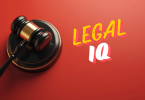1. The chief elements necessary to constitute a crime are:
(a) A human being
(b) An evil intent
(c) Injury to another human being or society
(d) All of the above
Answer is D.
2. “Dealer” includes a person who is engaged:
(a) In building bodies for attachment to chassis; or
(b) In the repair of motor vehicles; or
(c) In the business of hypothecation, leasing or hire-purchase of motor vehicle.
(d) All of the above
Answer is D.
3. Under Section 25 of the Land Acquisition Act, the amount of compensation awarded by the court:
(a) Shall not be less than the amount awarded by the Collector under Section 11
(b) Shall not be equal to the amount awarded by the Collector under Section 11
(c) Shall not be more than the amount awarded by the Collector under Section 11
(d) All of the above
Answer is A.
4. The undertaking contained in a promissory note, to pay a certain sum of money is:
(a) Conditional
(b) Unconditional
(c) May be conditional or unconditional depending upon the circumstances
(d) All of the above
Answer is B.
5. Recently, in which case the Kerala High Court held that a University Grant Commission criterion which allowed certain relaxation in marks to reserved categories as violation of Article 16(1) of the Constitution:
(a) Nair Service Society v. UGC, WP(C) No. 5190 of 2016 (W)
(b) CBSE v. UGC, WP(C) No. 5190 of 2016 (W)
(c) UGC v. State of Kerala, WP (C) No. 5190 of 2016 (W)
(d) UGC v. Secretary of State, WP(C) No. 5190 of 2016 (W)
Answer is A.
6. In which of the following cases, it was said that “unless a right of appeal is clearly given by statute it does not exist”:
(a) M/s Ram Narayan Pvt. Ltd. v. Trading Corporation Ltd., AIR 1983 SC 786
(b) Raja Himanshu Dhar Singh v. Addl. Registrar, AIR 1062 All 439
(c) Zair Hussain Khan v. Khurshed Jain, (1906) ILR 28 All 545
(d) Smt. Gangabai v. Vijaya Kumar, AIR 1974 SC 1126
Answer is C.
7. Which of the following sections deals with the provisions relating to maximum period for which an undertrial prisoner can be detained:
(a) 436
(b) 436A
(c) 437A
(d) 437
Answer is B.
8. To make the criminal harmless by supplying him those things which he lacks and to cure him to those drawbacks which made him to commit crime is known as:
(a) Expiatory or penance theory of punishment
(b) Deterrent theory or preventive theory of punishment
(c) Reformative or rehabilitative or corrective theory of punishment
(d) Retributive theory of punishment
Answer is C.
9. Pakala Narayan Swami v. Emperor is a leading case on:
(a) Dying Declaration
(b) Confession
(c) Accomplice
(d) Expert witness
Answer is A.
10. Who are the partners in a bill of exchange?
(a) Drawer & Drawee
(b) Payee
(c) Both (a) and (b)
(d) None of the above
Answer is C.
11. Income which accrue or arise outside India but are directly received into India are taxable in case of:
(a) Residents only
(b) Both ordinarily residents and non-resident
(c) Non-resident
(d) All the assesses
Answer is D.
12. ‘A’, a surgeon, knowing that a particular operation is likely to cause the death of ‘Z’, who suffers under a painful complaint, but not intending to cause Z’s death & intending in good faith Z’s benefit performs that operation of Z with Z’s consent. A has committed no offence. It is contained in:
(a) Section 88 of the IPC
(b) Section 89 of the IPC
(c) Section 90 of the IPC
(d) Section 87 of the IPC
Answer is A.





